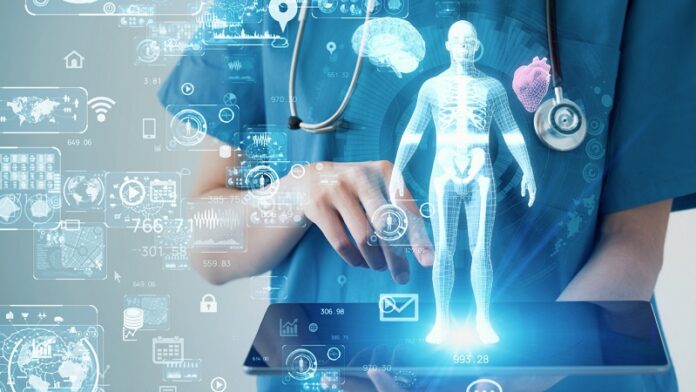The world of healthcare has experienced remarkable advancements, with technology playing an essential role in driving these changes. From improved medical equipment to the development of innovative treatments, technology has made healthcare more efficient, accessible, and effective.
Let us explore the different ways in which technology has changed healthcare.
Easier access to healthcare advice
Telemedicine’s usage, which rose exponentially during COVID-19 to restrict virus transmission, has turned out to be one of the effective ways to seek medical advice for patients irrespective of their geographical location.
This healthcare technology is a boon for those in rural and remote areas who require regular access to medical specialists. Telemedicine has enabled patients to keep up with follow-ups and adhere to treatment plans while preventing hospitalization and saving travel costs and time.
Telemedicine also allows Healthcare Professionals to offer consultation to patients at their preferred time slots and locations, enabling them to monetize their hours and reduce burnout.
Centralized Repository
Centralized repository systems at healthcare institutions enable HCPs and staff to upload and access resources such as patient information and supporting documentation without sifting through physical files and folders. This allows physicians to execute their duties efficiently.
Additionally, these systems are massively used in healthcare outsourcing to streamline the sharing of information between internal teams and external service providers.
This technology has streamlined information management and improved the overall efficiency of care delivery.
Disease Diagnosis
AI (Artificial Intelligence) and ML (Machine Learning) have made diagnoses easier. Examples include using CT scans to detect lung cancer or strokes.
Machine learning algorithms can assess the risk of heart disease by analyzing electrocardiograms and cardiac MRI images. Additionally, skin lesion classification in skin images and detection of indicators of diabetic retinopathy in eye images are among the many applications where machine learning is effective.
3D Printing
3D printing technology has revolutionized healthcare. From printing blood vessels, artificial limbs, and bio tissues to making pills, the potential applications of 3D printing in healthcare are continuously expanding and evolving. Thus, the major advantage of 3D printing is its ability to speed up production processes.
Virtual Reality
Studies have shown that VR (Virtual Reality) helps to improve cognitive and motor function in the geriatric population suffering from mild dementia or cognitive impairment.
In addition, VR therapy is known to strengthen the effects of traditional treatments by enhancing multisensory integration and processing.
VR is also used to address issues related to anxiety and trauma. In fact, according to another study based on an interpretation questionnaire, VR therapy reduced the fear of heights in individuals by 68%. Researchers are exploring how this therapy can be utilized to treat patients suffering from other psychological disorders.
Genome Sequencing
Genome sequencing involves deciphering the genetic material found in an organism or virus. Next-generation Sequencing (NGS) is a new technology in healthcare that has revolutionized the biological sciences. It is revolutionizing various fields, such as oncology, pharmacology, and infectious diseases.
Rise of Virtual Communication
In the wake of the pandemic, virtual communication has become increasingly prevalent among healthcare stakeholders. Even healthcare professionals who were initially hesitant to adopt digital channels for communication have embraced digital transformation.
Digital platforms facilitating remote meetings through video calls have proven highly effective in maintaining productive and insightful communication between a KOL (Key Opinion Leader) and pharmaceutical teams. As a result, post-pandemic, there has been a noticeable increase in pharma companies’ digital interaction with key opinion leaders.
In addition, virtual meetings have allowed teams to conduct discussions without having to navigate the logistical hurdles of organizing in-person meetings, saving time and resources.
Tracking health goals
Mobile apps and wearable devices have enabled people to manage their well-being easily. With features such as check-up reminders, access to medical information, and secure online test results, users can easily control their health without visiting their GP (General Practitioner).
The Road Ahead
With the ongoing technological developments in healthcare, the possibilities for future advancements seem to be exciting. However, the success of technology in healthcare will depend on how quickly healthcare professionals adapt and leverage these tools to improve the quality of care.
Read Also: Benefits Of E-learning In Healthcare



































































